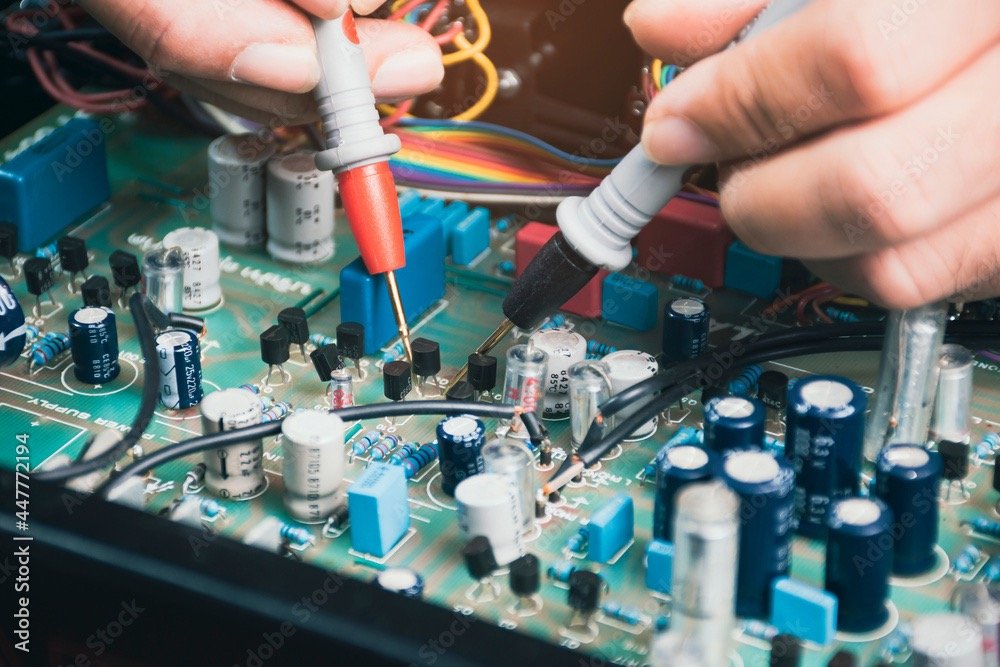WHO IS THIS FOR?
The Certified Aerospace Power Systems Specialist (CAPSS) certification is designed for:
Aerospace Power Systems Engineers: Professionals responsible for high-voltage power generation, distribution, and energy storage in aircraft, spacecraft, and missile systems.
Military & Defense Personnel: Service members specializing in aerospace power systems maintenance and electrical engineering roles (e.g., Air Force 3E0X2, Army 15F, Navy Aviation Electrician’s Mate, Marine Corps 6322).
Avionics & Electrical Engineers: Individuals working on integrated power and avionics systems for commercial and military aerospace applications.
Spacecraft Power Systems Specialists: Engineers focused on satellite power management, solar arrays, and deep-space energy storage solutions.
Aerospace & Defense Contractors: Professionals designing and testing power systems for aircraft, missiles, UAVs, and directed energy weapons.
Students & Early-Career Professionals: Individuals in aerospace engineering, electrical engineering, or avionics technology seeking specialization in aerospace power systems.
ELIGIBILITY
The Certified Aerospace Power Systems Specialist (CAPSS) certification is designed for professionals working with high-voltage power, energy storage, and EMI shielding in aerospace applications. Ideal candidates must:
Verify they fit one of the “who is this for” categories.
Meet U.S. Export Control requirements (Must be a U.S. Person).
Be able to understand, read, and write in U.S. English without interpreters or translators.
Operate a computer for email, browsing, logging in, Zoom or similar, and other basic functions.
Own or have access to a desktop or tablet computer with internet access, a front-facing camera, and a microphone in a quiet area for completing exams.
CERTIFICATION STANDARDS
1. Fundamentals of Aerospace Power Systems
1.1. Define aerospace power generation and distribution principles.
1.2. Explain AC and DC power architectures for aircraft and spacecraft.
1.3. Identify regulatory and safety requirements for high-voltage aerospace systems.
2. High-Voltage Power Generation & Distribution
2.1. Describe power generation methods, including turbine-driven and photovoltaic systems.
2.2. Explain power conversion, inverters, and distribution network architectures.
2.3. Identify redundancy and fault isolation techniques for mission-critical power systems.
3. Spacecraft & Missile Energy Storage Systems
3.1. Define battery technologies used in aerospace applications, including lithium-ion, solid-state, and supercapacitors.
3.2. Explain energy storage strategies for space missions and missile guidance systems.
3.3. Identify thermal runaway prevention and battery management system (BMS) requirements.
4. Electromagnetic Interference (EMI) Shielding & Protection
4.1. Describe EMI and electromagnetic pulse (EMP) shielding techniques.
4.2. Explain grounding and bonding methods for electrical noise reduction.
4.3. Identify protective measures for power electronics in high-radiation environments.
5. Aerospace Power System Reliability & Redundancy
5.1. Define power system reliability metrics and failure analysis techniques.
5.2. Explain dual-bus and isolated power architectures for redundancy.
5.3. Identify predictive maintenance strategies for aerospace electrical components.
6. Power Systems for Directed Energy & Advanced Aerospace Technologies
6.1. Describe power requirements for directed energy weapons (DEWs).
6.2. Explain high-power microwave and laser weapon power management strategies.
6.3. Identify electrical challenges in high-energy propulsion systems.
7. Power Electronics in Aerospace Applications
7.1. Define the role of power electronics in aircraft, spacecraft, and defense systems.
7.2. Explain power conditioning and load balancing techniques.
7.3. Identify failure modes and mitigation strategies for aerospace power converters.
8. Spacecraft Power Systems & Deep-Space Missions
8.1. Describe satellite power system architectures, including solar and nuclear power sources.
8.2. Explain energy storage and distribution challenges in deep-space missions.
8.3. Identify spacecraft power system integration methods for long-duration flights.
9. Future Trends in Aerospace Power Systems
9.1. Describe advancements in high-energy-density batteries and fuel cells.
9.2. Explain hybrid-electric propulsion and more-electric aircraft (MEA) power architectures.
9.3. Identify emerging technologies in wireless power transfer and superconducting power distribution.
RELEVANT MILITARY JOB CODES
The Certified Aerospace Power Systems Specialist (CAPSS) certification aligns with military roles specializing in aerospace power generation, high-voltage distribution, and energy storage technologies. Relevant military job codes include:
3E0X2 – Air Force Electrical Power Production Specialist
2A0X1 – Air Force Avionics Test Station & Component Specialist
15F – Army Aviation Electrical Systems Repairer
94F – Army Computer Detection Systems Repairer (avionics & electrical)
AE (Aviation Electrician’s Mate) – U.S. Navy Aircraft Electrical Systems Technician
Marine Corps 6322 – Fixed-Wing Aircraft Electrical Systems Technician
Space Force Satellite Electrical Power Systems Engineers
Aerospace & Defense Engineers in Power System Design & Energy Storage
This certification is valuable for aerospace engineers, avionics specialists, and defense contractors developing high-voltage power systems, energy storage solutions, and EMI shielding for critical aerospace and defense applications.
